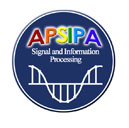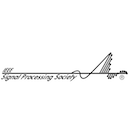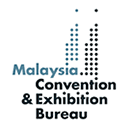Guidelines For Oral Presentations
APSIPA ASC 2017 attaches much importance to the presentation quality of the speakers. Please take some time to read the guidelines below to ensure your presentation is successful.
- Each lecture session is allocated 100 minutes. Please arrive at the room 15 minutes before your session begins and report to the session chair(s).
- Each paper is allocated about 20 minutes. We recommend that you will take about 15 minutes for your presentation and leave around 4 mins of Q&A and 1 min for change over.
- All lecture rooms will be equipped with a computer, a video projector, a microphone and a pointing device. Each computer will have Microsoft Office and Adobe Acrobat Reader installed. You may also use your own computer for your presentation. Please contact the helpers on-site for the connection.
- It is the tradition of APSIPA conferences that we always attach great importance to the quality of the presentations. For preparing a quality presentation, we have the following advices:
- Please be reminded to organize your slides around the points you intend to make, using no more than one slide per minute. A reasonable strategy is to allocate about 2 minutes per slide when there are equations or important key points to make, and one minute per slide when the content is less complex. Slides attract and hold attention, and reinforce what you say – provided you keep them simple and easy to read.
- Make sure each of your key points is easy to explain with aid of the material on your slides. Do not read directly from the slide during your presentation.
- It is very important that you rehearse your presentation in front of an audience before you give your presentation at APSIPA ASC 2017. Presenters must be sufficiently familiar with the material being presented to answer detailed questions from the audience.
** IMPORTANT NOTE **
Any accepted paper included in the final program is expected to have at least one author or qualified proxy attend and present the paper at the conference. Authors of the accepted papers included in the final program who do not attend and do not have a qualified proxy presented at the conference will be added to a “No-Show List”. The “no-show” papers will not be published by IEEE on IEEE Xplore, EI Compendex or other public access forums, but these papers will be distributed as part of the on-site electronic proceedings and the Copyright form that the authors submitted will still be valid.
Thank you for your help in making APSIPA ASC 2017 a success.

















